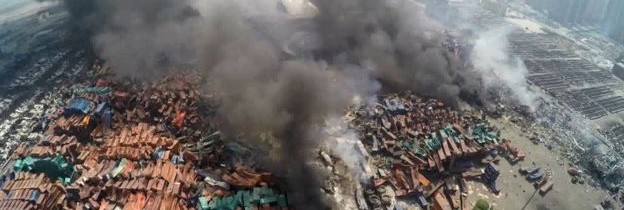Supply chain disruptions after the Tianjin disaster could impact electronics production and holiday retail
The recent explosions in the Chinese port of Tianjin could have far-reaching and long-lasting impacts on global supply chains. As one of the world’s largest ports, Tianjin is a primary gateway for goods produced in northern China and a shipping point for the chemicals used in electronics production.
The explosion occurred at a Ruihai International Logistics warehouse, which stored the majority of the hazardous chemicals shipped through Tianjin. As a result, experts predict that the price of many industrial materials, particularly for the electronics and health care industries, will rise in the coming weeks.
Immediate supply chain losses are huge as goods from hundreds of international companies were in the port at the time of the disaster. In addition, operations were suspended in two of Tianjin’s terminals as a result of the explosion. Projections are that the port will be clogged for weeks or even months.
With the U.S. holiday season less than three months away, this disruption comes at a particularly bad time. Many of the finished goods and materials in port would have been used to stock store shelves in November, but those products now see shortages and face costly delays.
Currently, goods are being rerouted to the ports of Qingdao and Shanghai, resulting in additional logistics costs.





